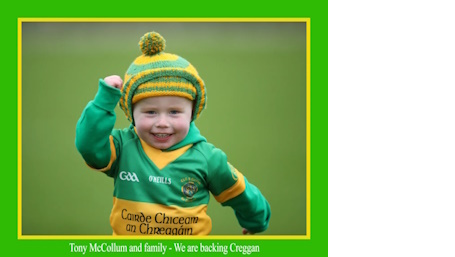SundayReflection
9th July 2023
J.John shows why we should

Nail our Colours
to the Mast
A friend recently reminded me of the expression
'nail your colours to the mast' and wondered about
its background.
A little research came up with a most rewarding answer.
In the 'Age of Sail', ships were identified by the flags
(or 'colours') that they flew from the top of their masts.
At a time, before radio, this was vital, allowing sailors to identify
who was on their side and who was the enemy.
This action has given rise to all sorts of English phrases.
So sometimes ships would disguise themselves by hoisting
other flags and would 'fly under false colours.'
If they then suddenly changed their flags to reveal their true
identity, they were 'showing their true colours'.
In a sea battle, any ship that wished to surrender would
lower her colours.
There is a story of how, during the great sea battle of Camperdown
in 1798 between the Royal Navy and the Dutch, the colours of the
British flagship were shot down.
Recognising the danger that this would be taken as a sign the British
had surrendered, a sailor, Jack Crawford, climbed to the top of the
main mast and, ignoring heavy fire, replaced the colours, nailing them
to what was left of the mast.
The battle continued and eventually the Dutch fleet was destroyed.
Some historians consider that it was this victory that allowed
'Britannia to rule the waves' of the world for the next
hundred and fifty years.
In which case, Jack Crawford's single act of heroism had consequences
of extraordinary significance.
So, for a ship's captain 'to nail his colours to the mast' was to do two things.
First, it was to state clearly the identity of the ship and who she served.
Second, it also made surrender virtually impossible.
It was a bold act of defiance, saying, in effect, that we will sink
rather than admit defeat.
For anyone who is a Christian today, this idea of nailing colours
to the mast is incredibly appropriate.
In this aggressively post-Christian age there has never been a greater
temptation to 'sail under false colours' and to hope that no one notices you.
This is a disastrous strategy.
After all, if you have been disguising yourself for some time,
when you do have to take a stand on a matter of faith
you will find it very difficult.
So you may find, like Peter at the trial of Jesus, that you have denied
your faith (Mark 14:66-72).
In any new setting it is wise to reveal as soon as possible that
we are a Christians.
In Acts 4:13-20, after the resurrection and the giving of the Holy Spirit,
Peter adopts a very different attitude towards keeping a low profile.
There may be a time and place for Christians to be secret believers,
but I do not believe that, in the West, it is yet.
Far better in the long run to fly the colours openly and make it clear
where our allegiance lies.
Actually, it is a good idea not just to fly the colours of the
Christian faith but to 'nail' them too.
Most of us like to be liked and it is always tempting to back off
when we are threatened.
Yet the fact of the matter is that we have to speak and live as
Christians whatever happens.
We cannot lower the flag of Christ just because we face hostility.
Let's nail our colours to the mast!
Bible references avaiable, on request
John Ioannou John (born 2 June 1958), best known as
J.John (written without a space in the middle), is an evangelist
and author based in the United Kingdom.
J.John was born on 2 June 1958 in London, England, to
George and Helen Ioannou.
His Greek name is Iouannes Iouannon, which translates as John John.
His parents were owners and managers of a local restaurant in London.
He studied psychology at Hendon College London from 1974 - 1976,
where in 1975 he was introduced to Christianity by a friend,
the Rev. Andy Economides.